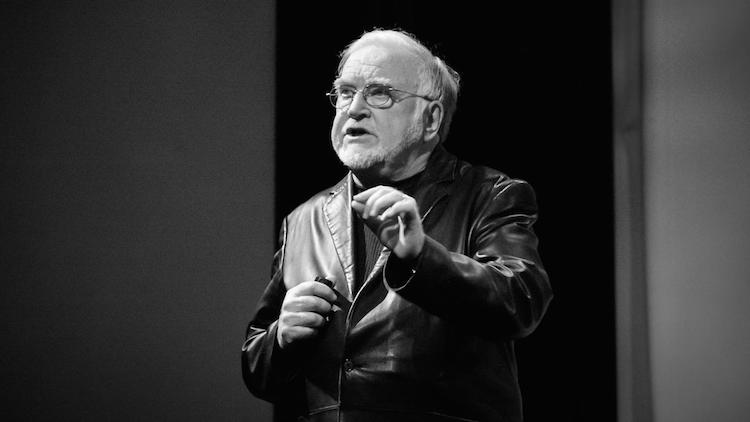
Mihaly Csikszentmihalyi
Mihaly Csikszentmihalyi is a Hungarian psychologist. He recognised and named the psychological concept of flow, a highly focused mental state. He is the Distinguished Professor of Psychology and Management at Claremont Graduate University. He is the former head of the department of psychology at the University of Chicago and of the department of sociology and anthropology at Lake Forest College.
Csikszentmihalyi is noted for his work in the study of happiness and creativity, but is best known as the architect of the notion of flow and for his years of research and writing on the topic. He is the author of many books and over 120 articles or book chapters. Martin Seligman, former president of the American Psychological Association, described Csikszentmihalyi as the world’s leading researcher on positive psychology.
In his seminal work, Flow: The Psychology of Optimal Experience, Csíkszentmihályi outlines his theory that people are happiest when they are in a state of flow—a state of concentration or complete absorption with the activity at hand and the situation. It is a state in which people are so involved in an activity that nothing else seems to matter. The idea of flow is identical to the feeling of being in the zone or in the groove. The flow state is an optimal state of intrinsic motivation, where the person is fully immersed in what they are doing. This is a feeling everyone has at times, characterized by a feeling of great absorption, engagement, fulfillment, and skill—and during which temporal concerns (time, food, ego-self, etc.) are typically ignored.
In an interview with Wired magazine, Csíkszentmihályi described flow as “being completely involved in an activity for its own sake. The ego falls away. Time flies. Every action, movement, and thought follows inevitably from the previous one, like playing jazz. Your whole being is involved, and you’re using your skills to the utmost.”
Csikszentmihalyi characterized nine component states of achieving flow including “challenge-skill balance, merging of action and awareness, clarity of goals, immediate and unambiguous feedback, concentration on the task at hand, paradox of control, transformation of time, loss of self-consciousness, and autotelic experience”.[15] To achieve a flow state, a balance must be struck between the challenge of the task and the skill of the performer. If the task is too easy or too difficult, flow cannot occur. Both skill level and challenge level must be matched and high; if skill and challenge are low and matched, then apathy results.
One state that Csikszentmihalyi researched was that of the autotelic personality. The autotelic personality is one in which a person performs acts because they are intrinsically rewarding, rather than to achieve external goals. Csikszentmihalyi describes the autotelic personality as a trait possessed by individuals who can learn to enjoy situations that most other people would find miserable. Research has shown that aspects associated with the autotelic personality include curiosity, persistence, and humility.
“Repression is not the way to virtue. When people restrain themselves out of fear, their lives are by necessity diminished. Only through freely chosen discipline can life be enjoyed and still kept within the bounds of reason.”
“Flow is being completely involved in an activity for its own sake. The ego falls away. Time flies. Every action, movement, and thought follows inevitably from the previous one, like playing jazz.”
“If you are interested in something, you will focus on it, and if you focus attention on anything, it is likely that you will become interested in it. Many of the things we find interesting are not so by nature, but because we took the trouble of paying attention to them.”
“What I “discovered” was that happiness is not something that happens. It is not the result of good fortune or random chance. It is not something that money can buy or power command. It does not depend on outside events, but, rather, on how we interpret them. Happiness, in fact, is a condition that must be prepared for, cultivated, and defended privately by each person. People who learn to control inner experience will be able to determine the quality of their lives, which is as close as any of us can come to being happy.”
“A joyful life is an individual creation that cannot be copied from a recipe.”
“If you do anything well, it becomes enjoyable. To keep enjoying something, you need to increase its complexity.”
“Creativity is a central source of meaning in our lives…most of the things that are interesting, important, and human are the results of creativity…when we are involved in it, we feel that we are living more fully than during the rest of life.”
“A leader will find it difficult to articulate a coherent vision unless it expresses his core values, his basic identity…one must first embark on the formidable journey of self-discovery in order to create a vision with authentic soul.”
“There are two main strategies we can try to improve the quality of life. The first is to try making external conditions match our goals. The second is to change how we experience external conditions to make them fit our goals better.”
“Creative individuals tend to be smart, yet also naive at the same time… Creative individuals have a combination of playfulness and discipline, or responsibility and irresponsibility.”
“To be successful you have to enjoy doing your best while at the same time contributing to something beyond yourself.”
“A business is successful to the extent that it provides a product or service that contributes to happiness in all of its forms.”
“An ideal organization is one in which each worker’s potentialities find room for expression.”


